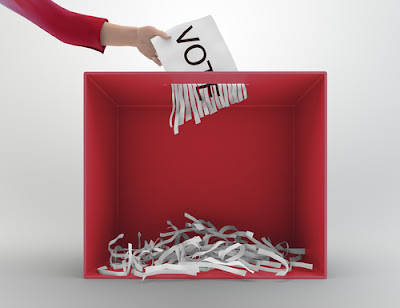wikileaks founder exposes government censorship, has passport confiscated
Julian Assange, the founder of WikiLeaks, has had his passport confiscated by Australian authorities. WikiLeaks is the truth-telling website that recently grabbed headlines when it released video of the US military murdering civilians by helicopter.
Assange has no fixed address, and spends most of his time traveling, running the website from his laptop. The confiscation of his passport effectively consigns Assange to house arrest - with no due process. No charges, no hearing, no right to representation.
Australian immigration officials told Assange his passport was looking worn and kept it, although they also told him his passport was classified as "normal". Some reports say Assange's passport will be cancelled. From what I can find online, the actual status is unclear.
Shortly after his passport was not returned, Assange received a letter from the Australian Communication Ministry informing him that WikiLeak's recent disclosure of a list of websites the Australian government is preparing to ban had been referred to the Australian Federal Police. The Australian banned-website list is supposed to protect against child pornography. But after WikiLeaks exposed the list - which contained many sites unrelated to pornography or any illegal activity - WikiLeaks itself was added to the list.
Glenn Greenwald writes:
Assange has no fixed address, and spends most of his time traveling, running the website from his laptop. The confiscation of his passport effectively consigns Assange to house arrest - with no due process. No charges, no hearing, no right to representation.
Australian immigration officials told Assange his passport was looking worn and kept it, although they also told him his passport was classified as "normal". Some reports say Assange's passport will be cancelled. From what I can find online, the actual status is unclear.
Shortly after his passport was not returned, Assange received a letter from the Australian Communication Ministry informing him that WikiLeak's recent disclosure of a list of websites the Australian government is preparing to ban had been referred to the Australian Federal Police. The Australian banned-website list is supposed to protect against child pornography. But after WikiLeaks exposed the list - which contained many sites unrelated to pornography or any illegal activity - WikiLeaks itself was added to the list.
Glenn Greenwald writes:
This is a reminder that one can't run around exposing the secrets of the most powerful governments, militaries and corporations in the world without consequences . . .
The Australian document was so damaging because the Australian government claimed that the to-be-banned websites were all associated with child pornography, but the list of the targeted sites including many which had nothing to do with pornography. That WikiLeaks was then added to the list underscores the intended abuse.
Forcing Assange to remain in Australia would likely be crippling to WikiLeaks. One of the ways which WikiLeaks protects the confidentiality of its leakers and evades detection is by having Assange constantly move around, managing WikiLeaks from his laptop, backpack, and numerous countries around the world. Preventing him from leaving Australia would ensure that authorities around the world know where he is and would impede his ability to maintain the secrecy on which WikiLeaks relies.
Secrecy is the crux of institutional power -- the principal weapon for maintaining it -- and there are very few entities left which can truly threaten that secrecy. As the worldwide controversy over the Iraqi Apache helicopter attack compellingly demonstrated, WikiLeaks is one of the very few entitles capable of doing so and fearlessly devoted to that mission. It's hardly surprising that those responsible would be harassed and intimidated by governmental agencies -- it'd be far more surprising if they weren't -- but it's a testament to how truly threatening they perceive outlets like WikiLeaks to be.

Comments
Post a Comment